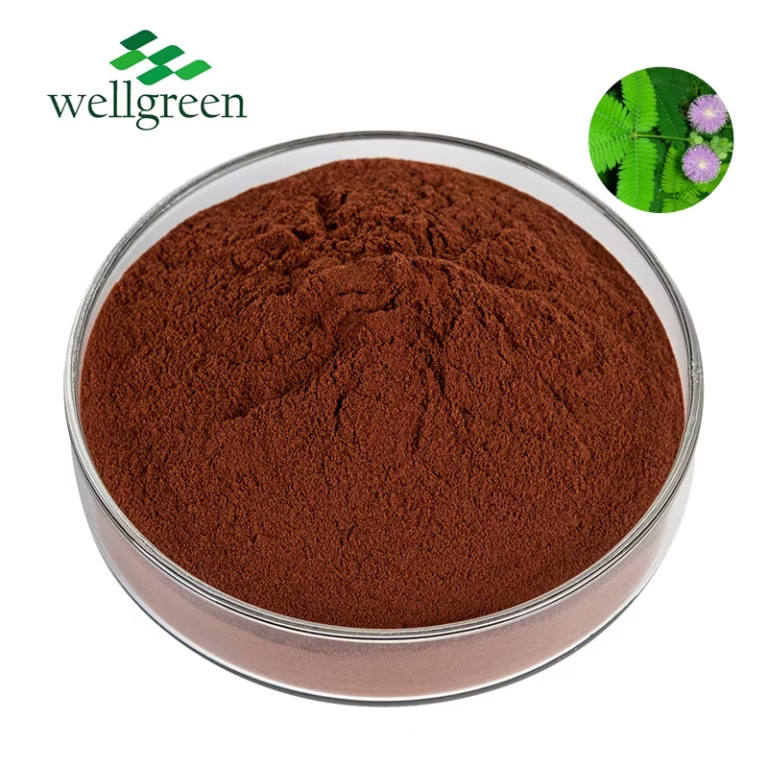Ethnobotanical Applications of Mimosa tenuiflora Root Bark
Ethnobotanical Applications of Mimosa tenuiflora Root Bark
Blog Article

The bark of this Amazonian plant, commonly known as quebracho blanco, have been used for centuries in indigenous medicine across the Americas.
Ethnobotanical studies highlight the effectiveness of M. tenuiflora preparations in treating a broad range of ailments, including infections.
Indigenous practitioners utilize the extract in multiple forms such as powders to alleviate symptoms.
Some key uses of M. tenuiflora encompass antimicrobial activity, and it is also thought to possess sedative properties.
An Examination of Mimosa tenuiflora Root Bark Extracts
This study focuses on investigating the phytochemical profile of Mimosa tenuiflora root bark extracts. The extraction methods employed involved various solvents, including methanol. The resultant extracts were then subjected to a battery of analytical tools such as gas chromatography-mass spectrometry (GC-MS) to detect the predominant phytochemical molecules. Preliminary results reveal the occurrence of a range of secondary metabolites, including terpenoids, which are known for their biological properties. This comprehensive phytochemical analysis aims to provide valuable insights into the benefits of Mimosa tenuiflora root bark as a source of natural remedies.
Historic Uses and Potential Medicinal Benefits of M. tenuiflora Root Bark
M. tenuiflora, a plant renowned for its remarkable root bark, has been employed in traditional medicinal practices for centuries. Indigenous communities have long acknowledged the therapeutic properties of this powerful substance. The root bark is traditionally extracted and administered to address a range of ailments, including infections.
Contemporary research is commencing to explore the potential of M. tenuiflora root bark in providing medicinal benefits. Studies have indicated that certain elements present in the bark may possess antibacterial properties, affecting its potential to combat a wide array of diseases. Moreover, preliminary research suggests that M. tenuiflora root bark may also possess cognitive-enhancing effects, though more comprehensive studies are essential to substantiate these findings.
Pharmacological Activity of Mimosa tenuiflora: A Review of Root Bark Studies
Mimosa tenuiflora, commonly identified as the jurema shrub, has a rich history of traditional medicinal practice in South America. The root bark of this genus is particularly valued for its diverse pharmacological properties. Numerous investigations have analyzed the potential benefits of M. tenuiflora root bark, revealing a range of constituents with noteworthy biological influence.
- One aspect of particular attention is the anti-inflammatory efficacy of M. tenuiflora root bark extracts.
- Initial data suggests that these formulations may modulate the immune response, potentially providing comfort from diverse inflammatory disorders.
- Moreover, studies have indicated that M. tenuiflora root bark may possess antioxidant characteristics, which could play a role to human health by counteracting oxidative damage.
The multifaceted nature of M. tenuiflora root bark profile and its capabilities for therapeutic applications warrant further investigation. As research advances, a more comprehensive understanding of the pharmacological effects of M. tenuiflora root bark may emerge, possibly leading to the development of novel and effective medicinal interventions.
Procurement and Characterization of Bioactive Substances from *M. tenuiflora* Root Bark
This research focuses on the procurement of bioactive molecules from the root bark of *M. tenuiflora*. Numerous extraction methods, utilizing aqueous solutions, will be utilized to obtain a variety of extracts. The characterization of these extracts will involve assays like mass spectrometry and structure elucidation. The biological effects of the isolated compounds will also be assessed using in vitro systems.
The objective of this research is to check here identify and characterize potent molecules from *M. tenuiflora* root bark with potential uses in medicine.
Examining the Anti-inflammatory and Antioxidant Properties of Mimosa tenuiflora Root Bark
Mimosa tenuiflora, commonly known as the Horse tree, is a shrub native to tropical regions. Recent research has focused on its {potentialuses for human health, particularly concerning its immunomodulatory and antioxidant properties. The root bark of Mimosa tenuiflora is a rich source of bioactive molecules such as flavonoids, which have been shown to exert potent effects against oxidative stress.
- Studies have demonstrated that extracts from Mimosa tenuiflora root bark can effectively reduce the production of inflammatory cytokines in both *in vitro* and *in vivo* models.
- Furthermore, these extracts have exhibited notable scavenging effects by trapping harmful free radicals, protecting cells from damage.
These findings suggest that Mimosa tenuiflora root bark holds promise as a {naturaltreatment for various inflammatory and oxidative stress-related conditions. However, further research is needed to fully elucidate its mechanisms of action and optimize its therapeutic potential.
 Report this page
Report this page